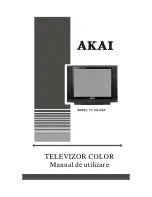
IWR-5 Wireless Pressure & Temperature Receiver - Operating Manual
Page 2 IWR-5 Iss2.1
CONTENTS
1.
INTRODUCTION
_______________________________________________________ 2
1.1 Safety Information
_______________________________________________________ 2
1.2 Hardware Features
_______________________________________________________ 2
2.
UNPACKING
__________________________________________________________ 3
3. IWR-5 Receiver set up procedure
_______________________________________ 3
4.
TROUBLE-SHOOTING GUIDE
__________________________________________ 6
5.
SYSTEM PART NUMBERS
______________________________________________ 7
6. SPECIFICATIONS
______________________________________________________ 7
1. INTRODUCTION
1.1 Safety Information
This manual contains information that must be observed in the interest of your own
safety and to avoid damage to assets. Please read this manual before installing and
commissioning the device and keep the manual in an accessible location for all users.
To satisfy FCC RF Exposure requirements for mobile and base station transmission
devices, a separation distance of 20cm or more should be maintained between the
antenna of this device and persons during operation. To ensure compliance operation at
closer than this distance is not recommended. The antenna used for this transmitter must
not be co-located or operating in conjunction with any other antenna or transmitter
1.2 Hardware
Features
The IWR range of Wireless Pressure & Temperature Receivers has been designed to
receive the values from Wireless Pressure & Temperature transmitters and output the
measured value as 4-20mA or 1-5Vdc analogue output signals.
The IWR-1 has a single output and the IWR-5 has five outputs, each of which can be
linked to an individual transmitter.
The IWR range of receiver units operate on the licence-free 2.4GHz frequency band.
Ranges of up to 500m are possible using the standard transmitter and receiver units with
the supplied antennas. The actual achieved ranges can be adversely effected by
obstacles (particularly metals), walls, trees, vehicles, etc., in between the transmitter and
receiver.
The receiver is powered by a DC voltage of 12-32Vdc.


























